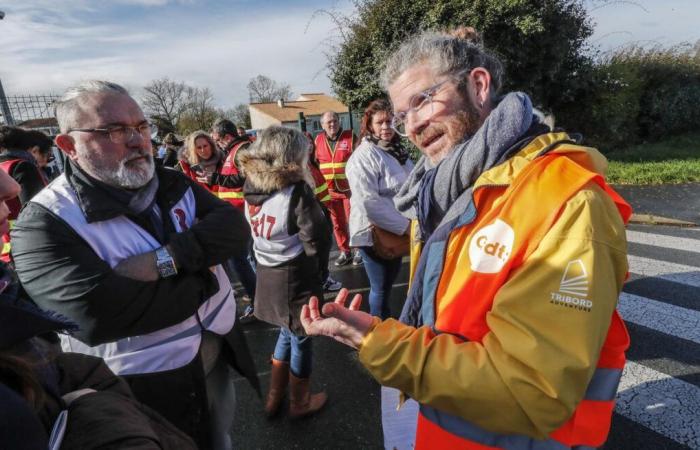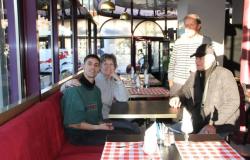Afamily assistants, agents of social assistance for children (ASE), maternal and child protection (PMI), children's homes, the sub-directorate of social action (SDAS), the All child protection workers are called to mobilize on Monday December 16, in front of the Maison de la Charente-Maritime. The inter-union (CFDT, FO, CGT) intends to alert the departmental advisors, who will meet for the opening of the winter session, about the suffering of “social emergency workers”.
“Loss of meaning of work”, “sometimes uninhibited management”, “lack of attractiveness”, “work overload”, “deterioration of working conditions”… The list is long of “dysfunctions” which lead, according to the unions, to “insufficient, precarious and insecure support for professionals and users”.
There are not enough family assistants. We are also caught up in administrative tasks
“We can no longer carry out our prevention missions,” confirms Béatrice Pérucha, CFDT health and social departmental secretary. There is a lack of resources, there are not enough family assistants. We are also caught up in administrative tasks. »
The observation of “the inadequacy of the resources deployed with the real needs on the ground”, according to the inter-union, is also that of… Sylvie Marcilly. “I will go to the square,” announces the president of the Departmental Council, “to tell them how much I understand their demands, I share them and I support them. »
Sylvie Marcilly, president of the Charente-Maritime Departmental Council, Tuesday December 10.
Frédéric Zabalza/SO
“Silent victims”
A new version of the child protection plan will be presented to the departmental assembly during the winter session. “A priority of the mandate”, recalls Sylvie Marcilly, who says she works within the Association of Departments of France to change the “unbearable situations” experienced by children and families. The president calls for “collective awareness”, demonstrating the support of Brice Blondel, prefect of Charente-Maritime. Since March, the Department has brought together representatives of the Regional Health Agency, National Education and Justice to improve the processing of cases, behind which lives are hidden. “I was able to speak at great length, around ten days ago, with Gérard Larcher [président du Sénat]who is very sensitive to this issue, she adds. He will put this issue of early childhood in danger on the Senate work plan. »
In the meantime, a third of the children entrusted to the Department, or around sixty, reveal psychomotor disorders. However, in three years, 33 places in medical-educational institutes (IME) have been eliminated. “The structures are no longer able to accommodate them,” laments Sylvie Marcilly. The Children's Home is a gateway that never closes; some children stay for several years. They are silent victims. »
The budget of the departmental service for families and early childhood increased from 85 million to 118.5 million euros from 2021 to 2024. It should be around 122 million in 2025. However, this is not a problem that will rule “with millions” estimates Sylvie Marcilly. “The solution can only come from the State”, she concludes, while Charente-Maritime “does not have the means to build a third children’s home”.
« Electrochoc »
The inter-union “cannot deny” the budgetary effort of the Department and recognizes “advances” in the activity of the Children's Home, but asks that the community “take into account the ground”. “Simple measures could be put in place quickly,” assures Béatrice Pérucha. A concrete example: the maternal center, which welcomed pregnant mothers or mothers with a child under three years old, no longer exists, even though it is a very important structure. »
Brigitte Desveaux, elected representative of the left-wing opposition group At the heart of solidarities, also fears that “the actors on the ground were overlooked” during the development of the plan. She notes that the management of the social sector is “the most affected by absenteeism, which is close to 9 to 10%”, and that the accident rate, due to violence, is high. The opposition group regrets “that no financial indicators or reinforcement of staff” appear in this plan. “There is an electric shock to be given,” demands Brigitte Desveaux. We must act on our part to welcome with dignity. »
Sylvie Marcilly argues the opposite, taking as an example the reinforcement of PMI teams for home support for families in fragile territories, based on the Anglo-Saxon model. The president also wants to draw inspiration from Italy, which favors the choice of a “trusted third party”, the placement of a child with a parent or close friend. In France, this measure still comes up against the decisions of magistrates, “even though it is provided for by the Taquet law” passed in 2022, she specifies.






